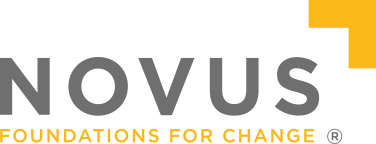Investigating Lasting Change in Prison Rehabilitation
Adult Provision Youth Provision

Prison rehabilitation can have a life-changing impact on offenders when it’s done right, and with the right support in place.
Rehabilitation programmes that focus on prison education and training, mental health, skills development, and preparation for re-entering society are often shown to be very successful in helping learners turn their lives around.
By confronting the root causes of criminal or antisocial behaviour and helping learners find tools and strategies for lasting change, rehabilitation really does give people another chance to contribute positively to their communities.
What is prison rehabilitation?
Prison rehabilitation refers to the services designed to help prisoners successfully reintegrate into society upon release from prison. At Novus, our goal is to help reduce the reoffending rates through prison education.
For prisoners to be successfully rehabilitated upon release, they need to engage in interventions and programmes whilst in prison, including education. Prison education is a significant factor to rehabilitation, and we support learners to engage in education so that they can gain the skills and qualifications needed to thrive upon release.
The role of prison education in rehabilitation
Research conducted by the Ministry of Justice found that learners who had engaged in education whilst in prison were significantly less likely to reoffend within 12 months of release than those who had not. Prison education plays an integral role in reducing reoffending and helping learners find employment upon release, which is why we try to engage as many learners as possible in our education offer.
We provide prison education, training and support services to equip learners with the skills and qualifications needed to be successfully rehabilitated. At Novus we provide a wide curriculum offer including English, maths and digital skills, vocational and technical training, creative enrichment and higher level and distance learning which all help to address the learners’ lack of education and qualifications, which is one of the root causes of criminal behaviour. Improved education helps to prepare learners for successful reintegration into society as well as equipping learners with the right qualifications to find employment upon release and be successfully rehabilitated.
However, prison education goes beyond equipping learners with the qualifications needed to find employment upon release, it also fosters personal growth and increased self-esteem. Inspiring and encouraging learners to make a positive change in their lives isn’t possible until they believe in themselves and their abilities.
Through education, learners not only have the opportunity to develop and obtain qualifications and technical skills but are also able to develop personally and increase their self-esteem and confidence.
If learners, who previously faced barriers to accessing education, are able to engage in prison education as well as gain new skills and qualifications, it will improve their confidence and belief in themselves and show them what they are capable of.
Challenges in prison rehabilitation
At Novus we understand there can be many obstacles to a learner’s successful rehabilitation both in prison and upon release, which is why we address these common challenges so that learners are set up for success as soon as they leave prison.
Lack of a supportive environment
Weak family relationships or a lack of positive relationships can leave individuals feeling isolated and alone. Without the right support and encouragement from family and friends, it can cause individuals to relapse into criminal behaviour.
Strengthening family ties through prison education
In order for individuals to be successfully rehabilitated, they need to have a good support system in place before they are released from prison. Research suggests that learners who maintain positive family relationships are less likely to reoffend upon release. At Novus we provide learners the opportunity to take part in projects and initiatives that strengthen family ties, so that upon release they have the supportive environment needed to be successfully rehabilitated.
Maintaining family ties through the We Rour Tour 2024
We Roar is a prison arts project devised by Faye Claridge, in partnership with Novus and the Prison Creative Arts Project (PCAP) at the University of Michigan. The project supported 20 learners in prisons across England and America to create artwork and poetry. Participants were sent three pieces of inspiration and were challenged to respond creatively, producing fantastic art pieces.
The artwork produced by learners was then collated into an exhibition and toured across UK prisons that were involved in the project, visiting multiple sites that Novus operate in.
During the UK We Roar Tour, some prisons used the opportunity to host family days, so that learners who had participated in the project, could show their families what they had created. Through events like this, learners are able to show their families that they are using their time productively and engaging in positively in meaningful projects. This is crucial, for a learner's rehabilitative journey as it shows learners that they can contribute positively to society and by having their families witness this, it also shows them that they can be positive role models, strengthening family ties and inspiring them to stay out of prison.
Employment challenges
Lack of employment opportunities upon release, can be a huge challenge for learners re-entering society and can have a detrimental effect on an individual’s successful rehabilitation. As an ex-offender finding employment opportunities can be extremely difficult for several reasons such as stigmas associated with a criminal record, lack of education and qualifications and lack of employment support.
At Novus, we aim to break down these barriers so that learners are equipped with the tools and skills needed to find employment upon release and successfully re-integrate into society.
Employment support at Novus
As well as our education provision, we also offer employment support for learners either through our Novus Works Team, Partner Employers or by working with the Prison Employment Leads. Our experienced team provide an extensive range of support to help learners develop the skills needed to find, apply and secure a job.
Novus Works
Our Novus Works team supports learners into employment upon release by acting as the middle ground between our learners and employer partners, creating a link from education to employment.
Novus Works also help learners build their confidence through interview practice and CV development, whilst on the employer end, help pair prison leavers with local and national businesses and help minimise the resources required to secure talent.
Partner employers
We work with a wide range of local, regional and national employer partners to provide more employment opportunities for learners upon release, giving learners access to real job opportunities, apprenticeships and training.
Our employer partners provide guidance on industry standards, making sure that our curriculum and training is relevant to the needs of the real world, so learners can be equipped with the most up-to-date and relevant skills needed for their chosen career.
By introducing employers to learners through site visits and employment initiatives whilst in prison, it gives learners the opportunity to nurture professional relationships, making connections in their chosen industry, as well as gaining real-world knowledge about the recruitment process and what employers look for in a potential employee.
Qualifications and skills development through education
Upon entering prison, many individuals lack the qualifications and skills needed to find employment upon release. Without the right qualifications and skillset, learners will find it difficult to find employment upon release, contributing to a cycle of reoffending.
Whilst in prison, its crucial that we engage as many learners as possible into education so that they can gain the right qualifications needed for their chosen career path.
Employment opportunities in radio for former HMP Isis and HMP Brixton learner
A former learner who originally served their sentence at HMP Isis and later transferred to HMP Brixton, has successfully found employment opportunities in radio upon release, thanks to the support he received from Novus and National Prison Radio whilst in prison.
Whilst at HMP Isis the learner enrolled on the radio broadcasting course and completed his NCFE radio broadcasting qualification before being transferred to HMP Brixton where he worked as a producer/presenter on National Prison Radio for the remainder of his sentence.
Upon release, the former learner had the opportunity to work as a trainee for the Prison Radio Association, which included a work-experience placement with BBC Radio 1Xtra. He then applied for the BBC ‘Where it begins’ radio scheme and beat 399 other talented people to get onto this scheme and had a fantastic experience. The scheme has now come to an end and the former learner is now working as a freelance content assistant and doing really well.
Taking part in education courses such as the Radio Broadcast course and taking advantage of all employment opportunities whilst in prison, has enabled the former learner to not only develop his skills and gain qualifications in radio, but has also given him the tools and experience necessary to work in an industry that he is passionate about.
Neurodiverse needs
With over 30% of prison learners having a learning difficulty and/or disabilities, it is crucial that we have the right support and interventions in place so that our education provision meets the individual needs of each learner, as well as equipping learners with the right skills and coping strategies to be successfully rehabilitated.
At Novus we are dedicated to tailoring our education services so that all learners, can access the education and support that they need to gain the skills and qualifications which will help them find employment upon release.
Many neurodivergent learners have difficulty with conventional teaching methods and may require specialised educational support.
At Novus we provide additional support for neurodiverse learners which include supportive learning programmes, accessible learning environments and adapted curriculum materials. All of which contribute to ensure neurodiverse learners have access to the resources they need to be successful.
Learner success story at HMP Low Newton
A neurodiverse learner from HMP Low Newton has been making excellent progress in their education journey. The learner struggles with ADHD and dyslexia but with the support of her tutor, prison and Novus staff, appropriate targets have been agreed.
Through a tailored individual learning plan, learning journal documents, and the support from their tutor and Novus colleagues, appropriate support has been put in place to help the learner attend their classes as well as having access to vital services such as the Primrose therapy intervention programme.
Whilst in class, completing her level 2 hairdressing qualification, targets have been put in place so that the learner can get the most out of their classes.
Through collaborative discussions with her tutors and Novus colleagues, the learner has been able to have a say in her learning plan, enabling the learner to have a voice and shape her learning journey in a way that will help to support her neurodiverse needs.
Prior to starting the hairdressing course, the learner completed their functional skills English, and maths courses. At first, the learner was reluctant and was struggling with her ADHD at the time of completing her English qualification.
The learner was waiting for her ADHD medication and spent a lot of time in the Care and Supervision Unit at Low Newton (CSU). However, after a discussion with the Governor and expressing her interest in the hairdressing qualification, the Governor and hairdressing tutor worked collaboratively, to encourage the learner to complete their functional skills maths as they couldn't start on the hairdressing course without it.
With the right support and help from the prison and hairdressing tutor, the learner was able to complete her maths course and secure a place on the hairdressing course.
Prison rehabilitation can change lives and strengthen communities. By supporting education programmes, skills development, and personal growth initiatives, we can help create lasting change in our communities.
To learn more about our education provision and how we support learners, take a look at the news section.


